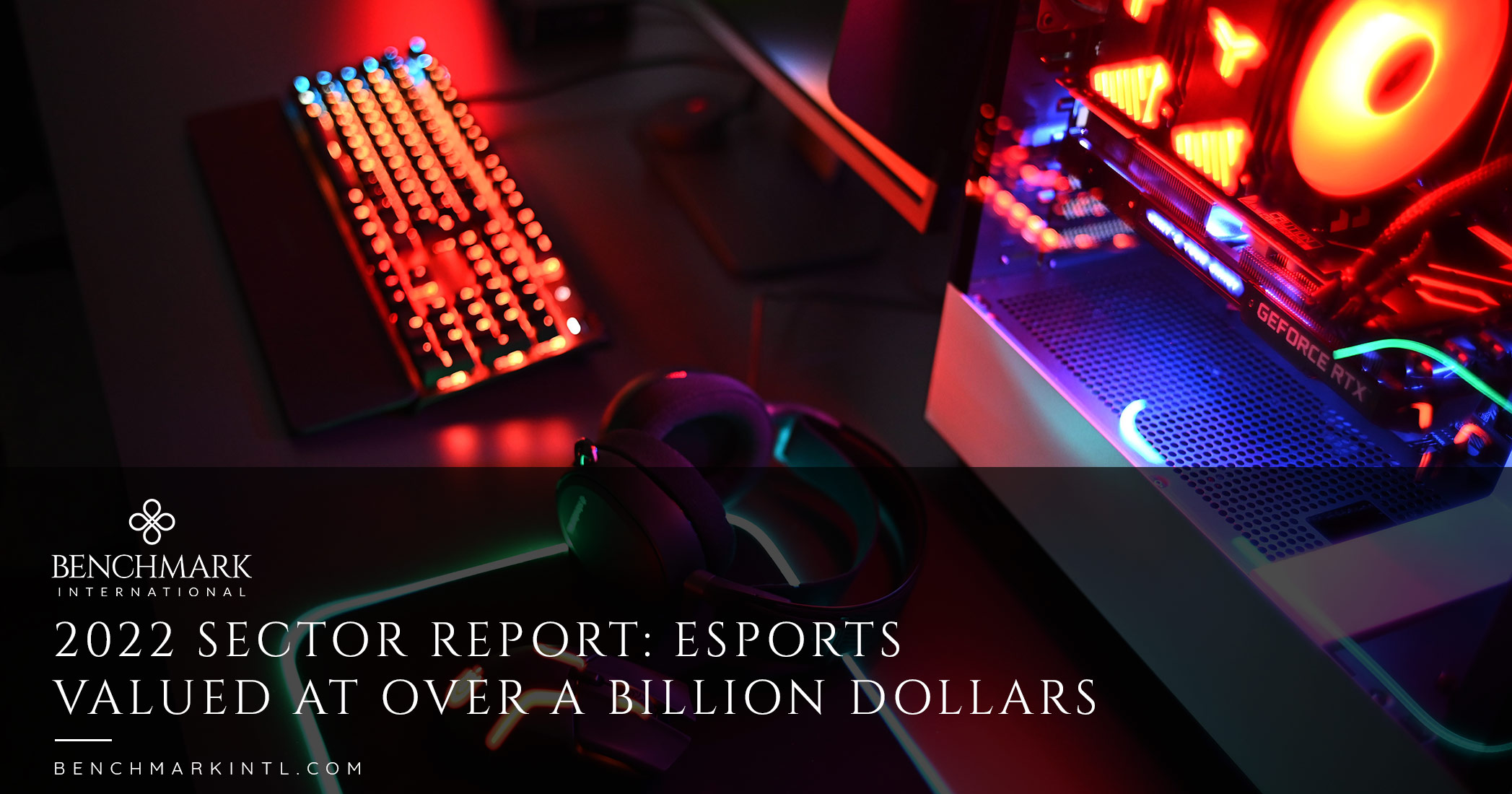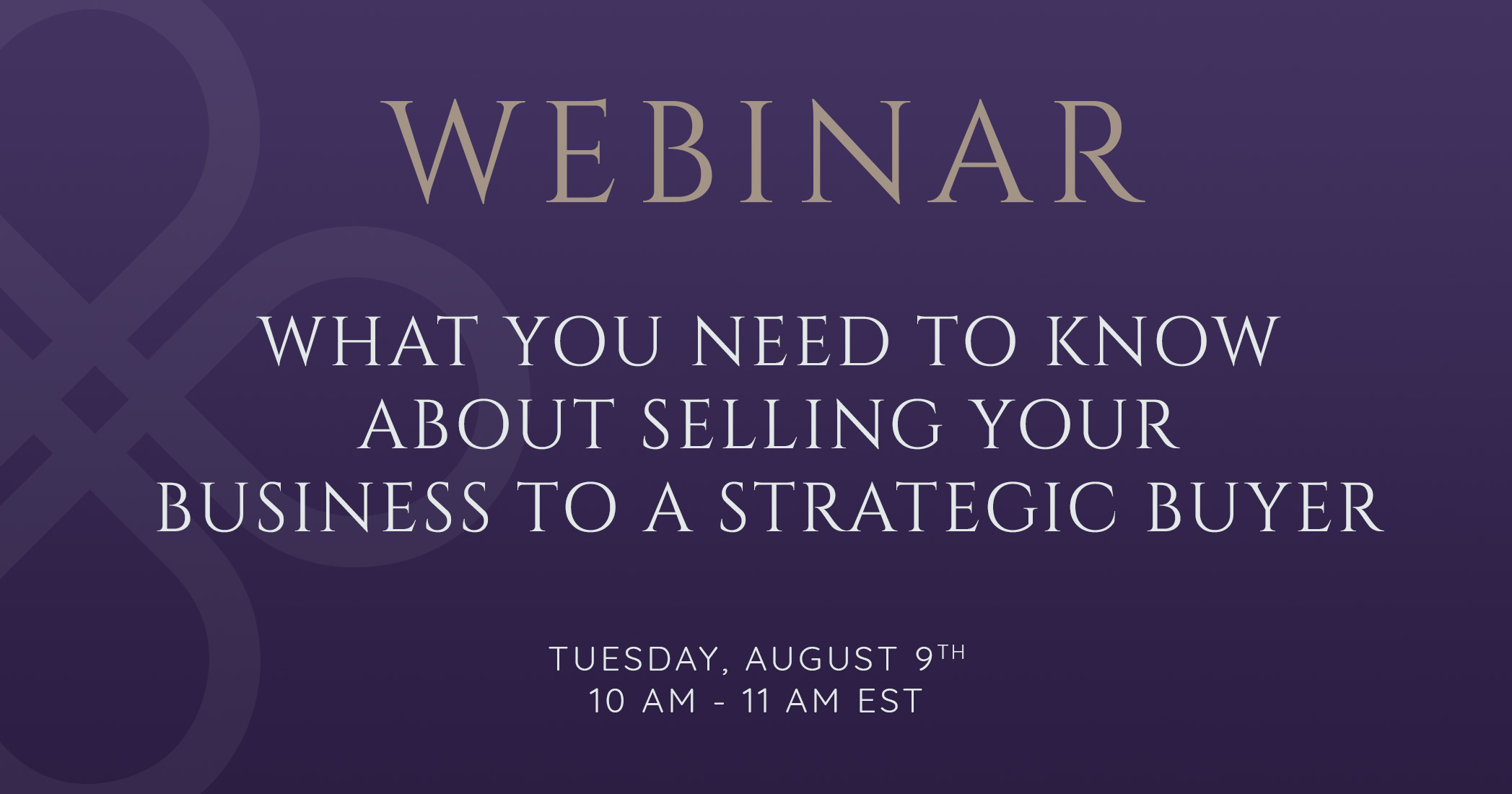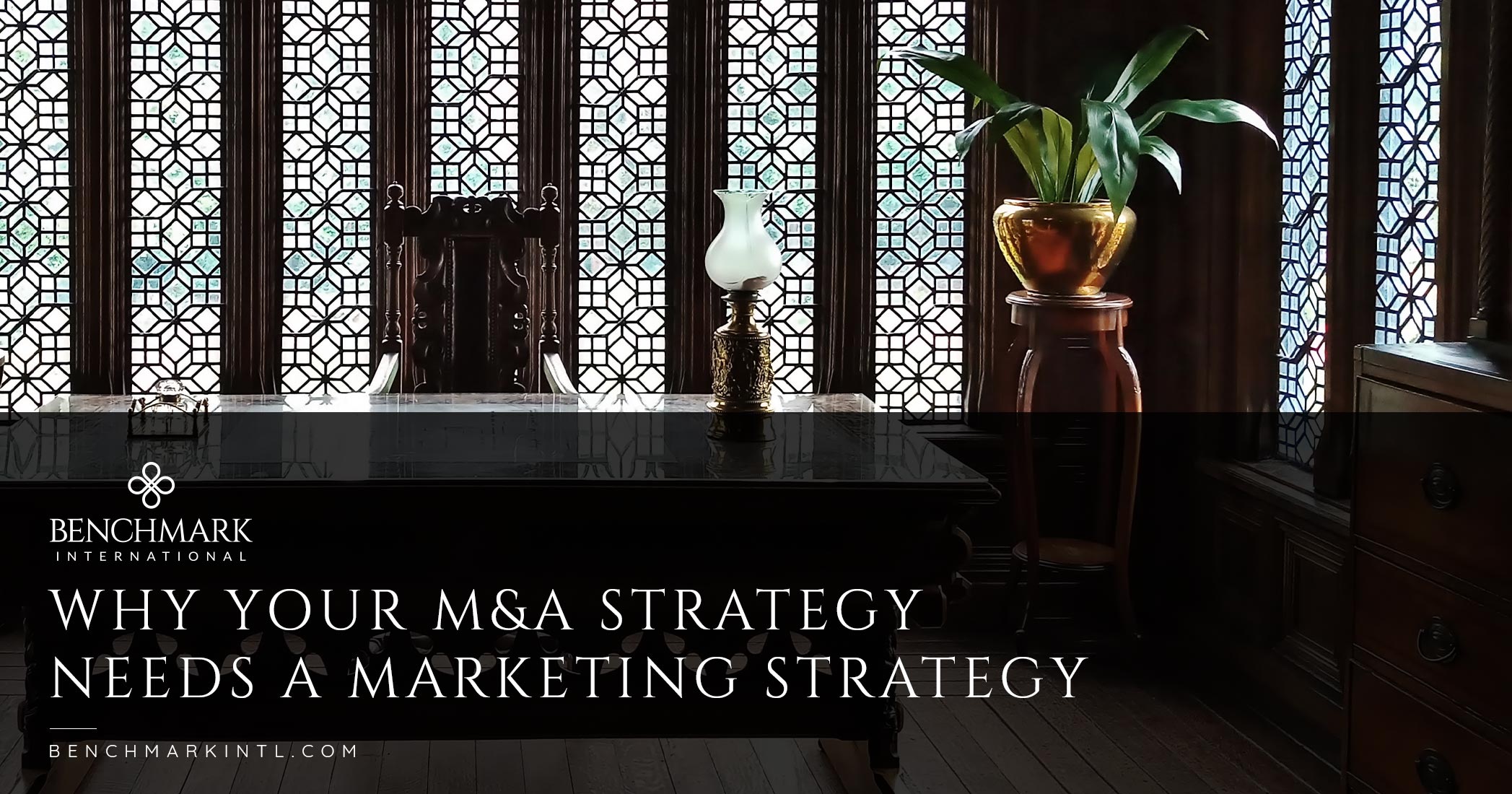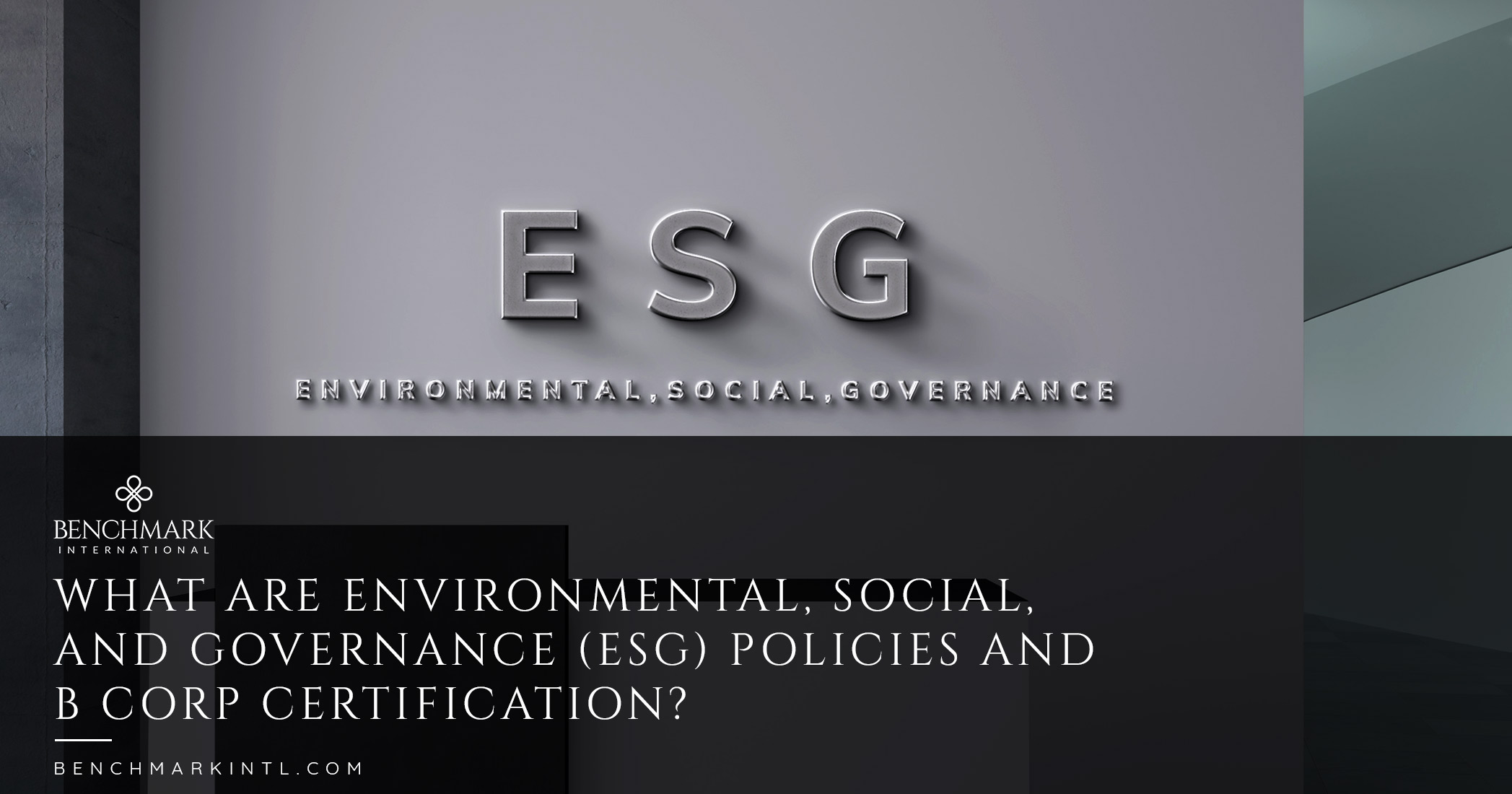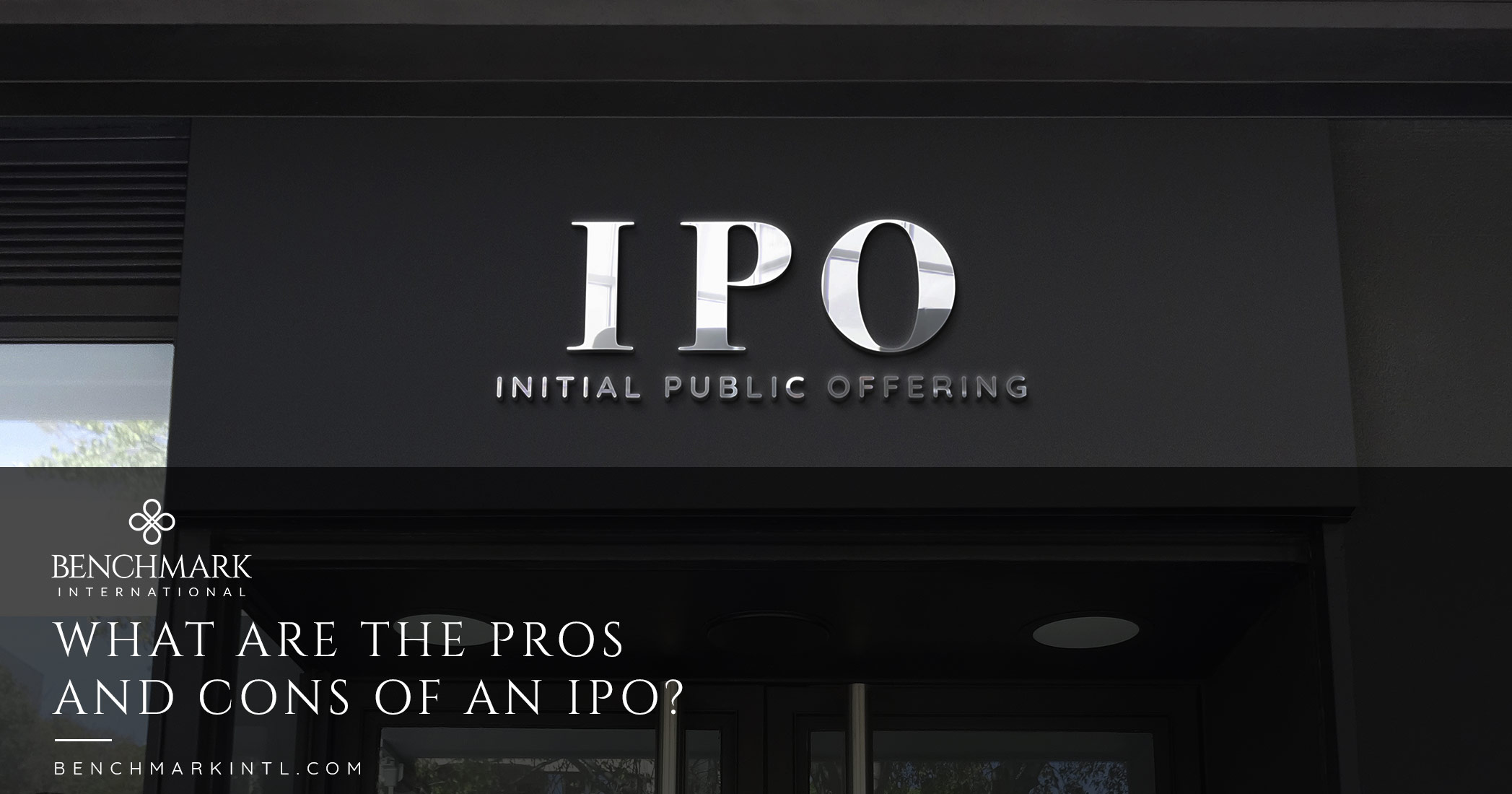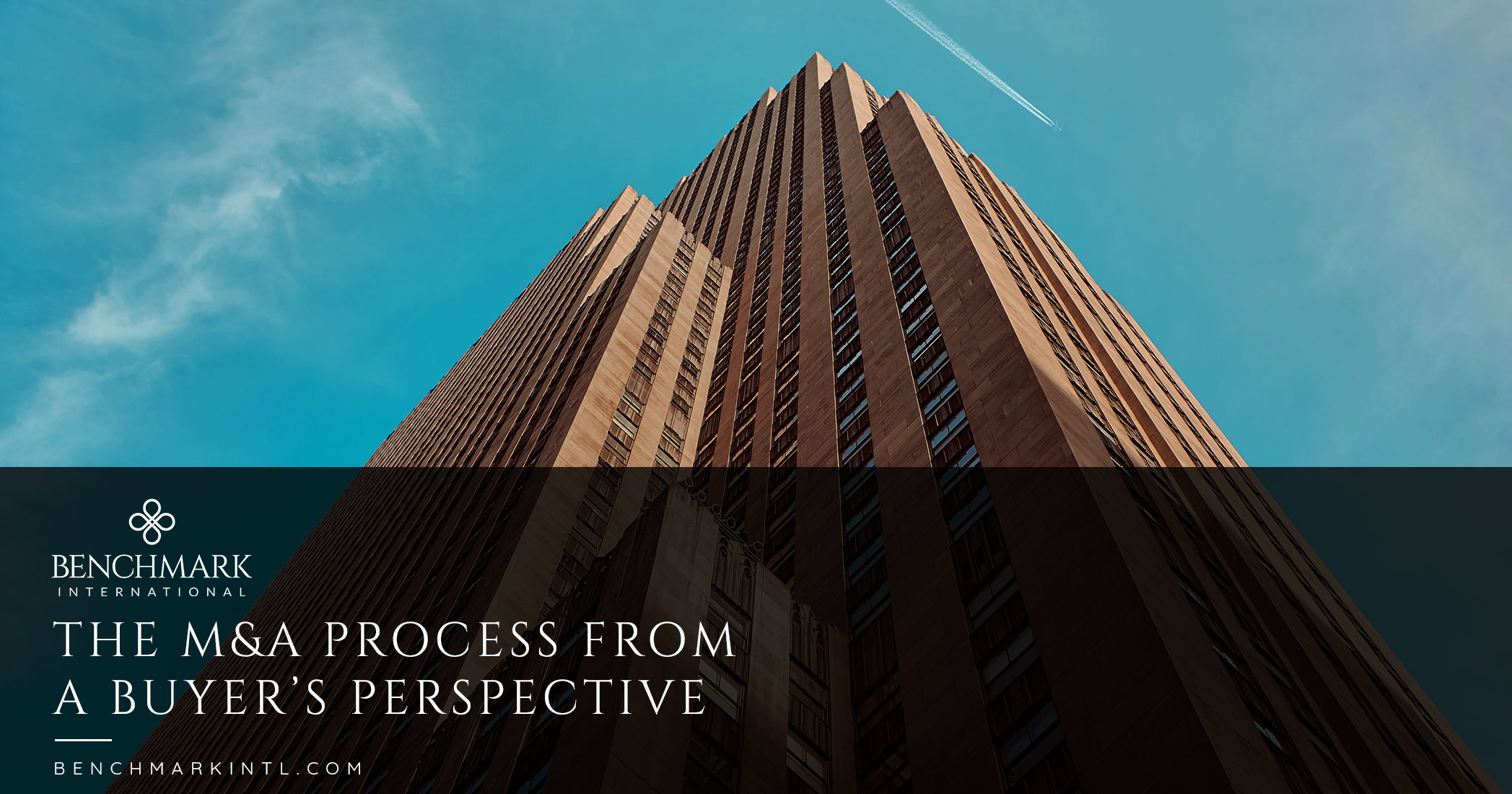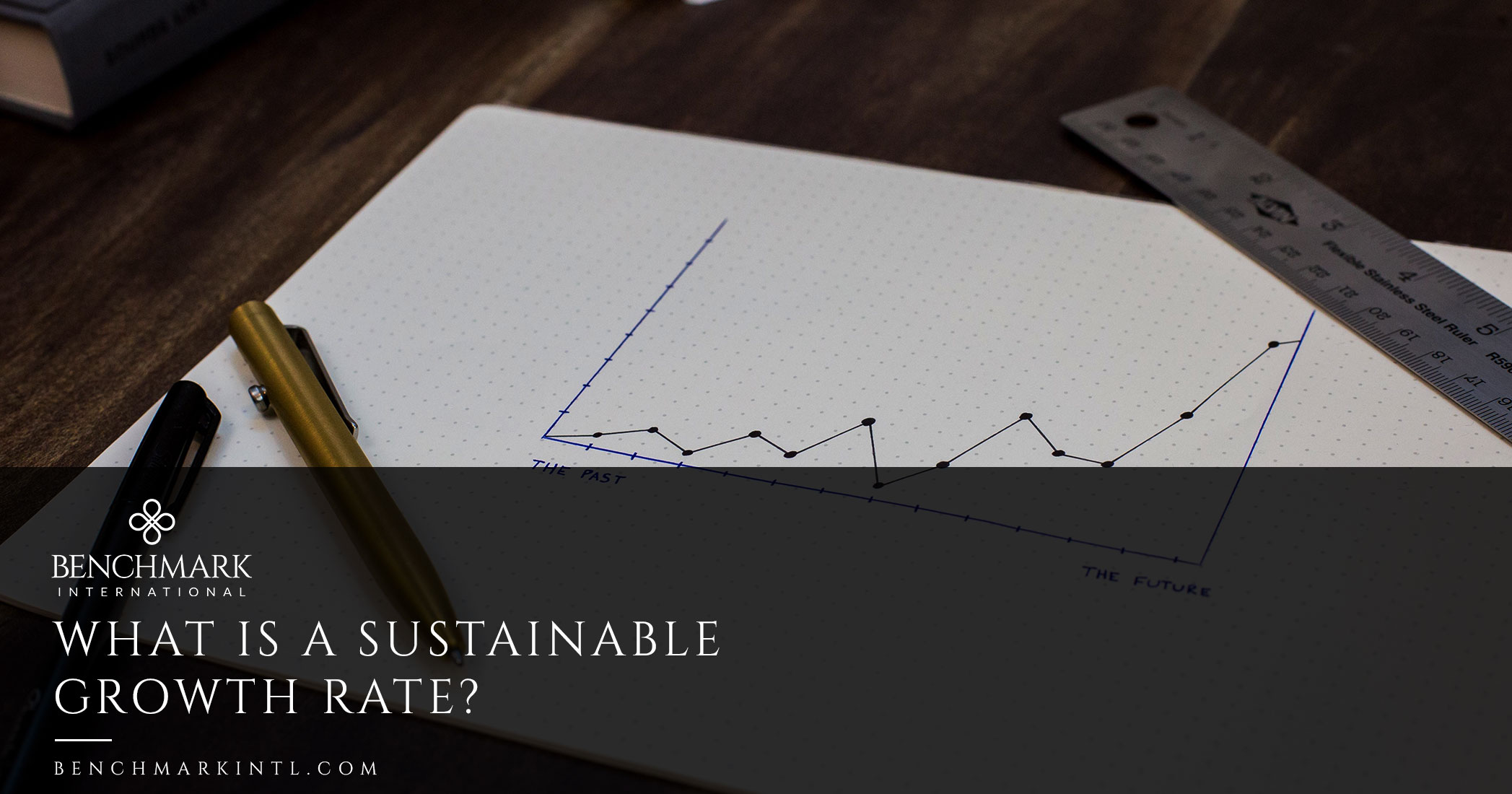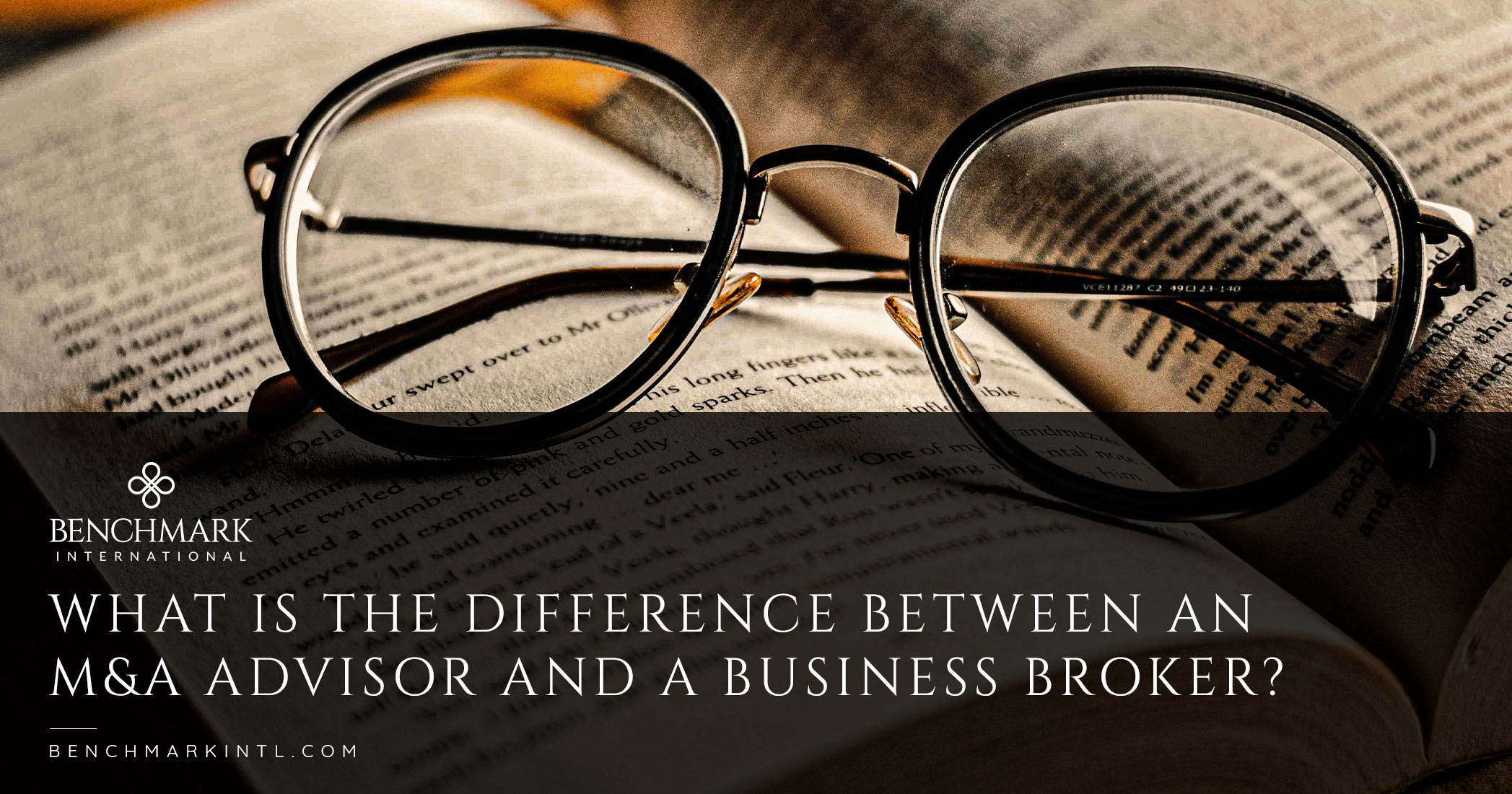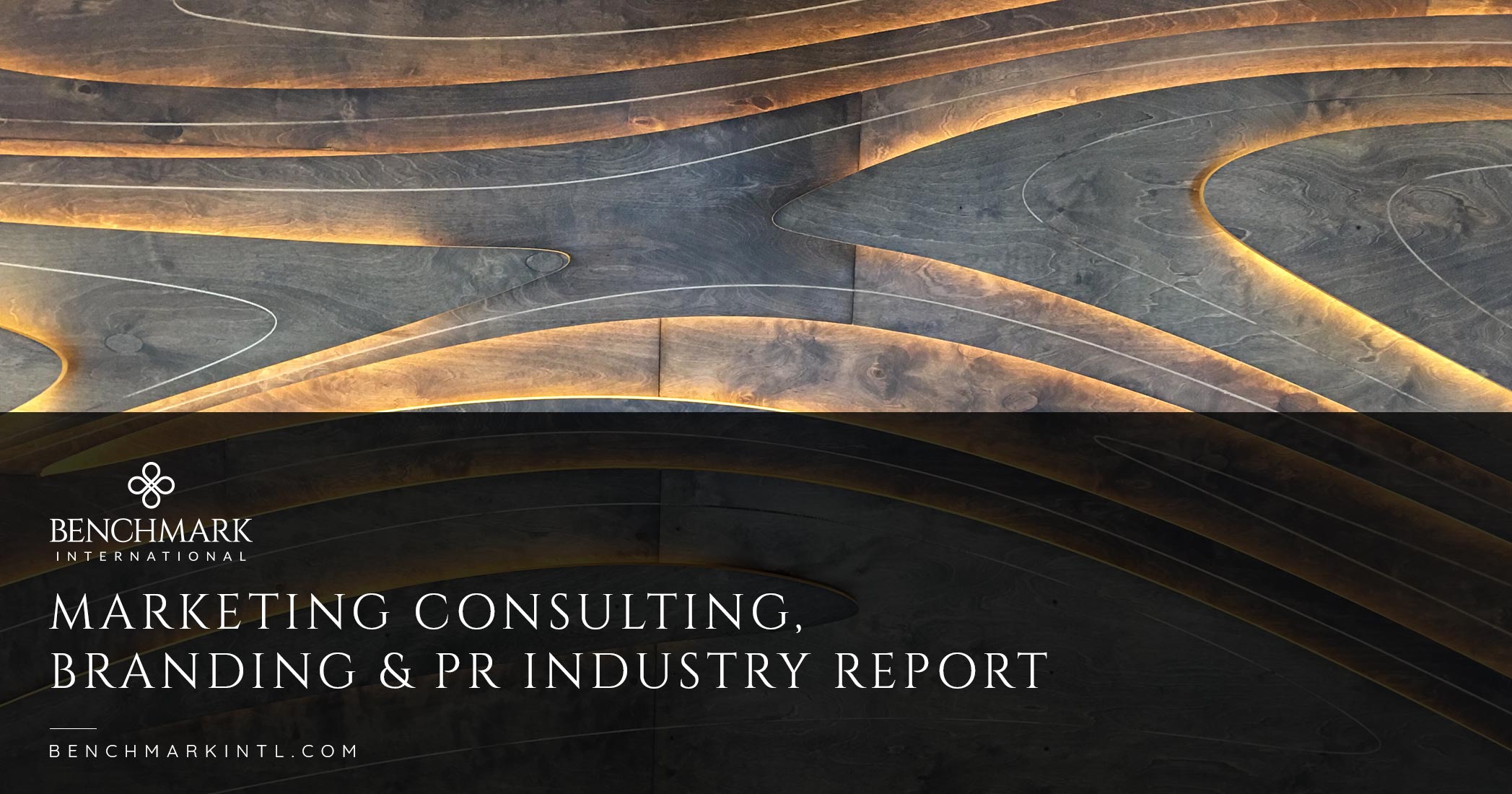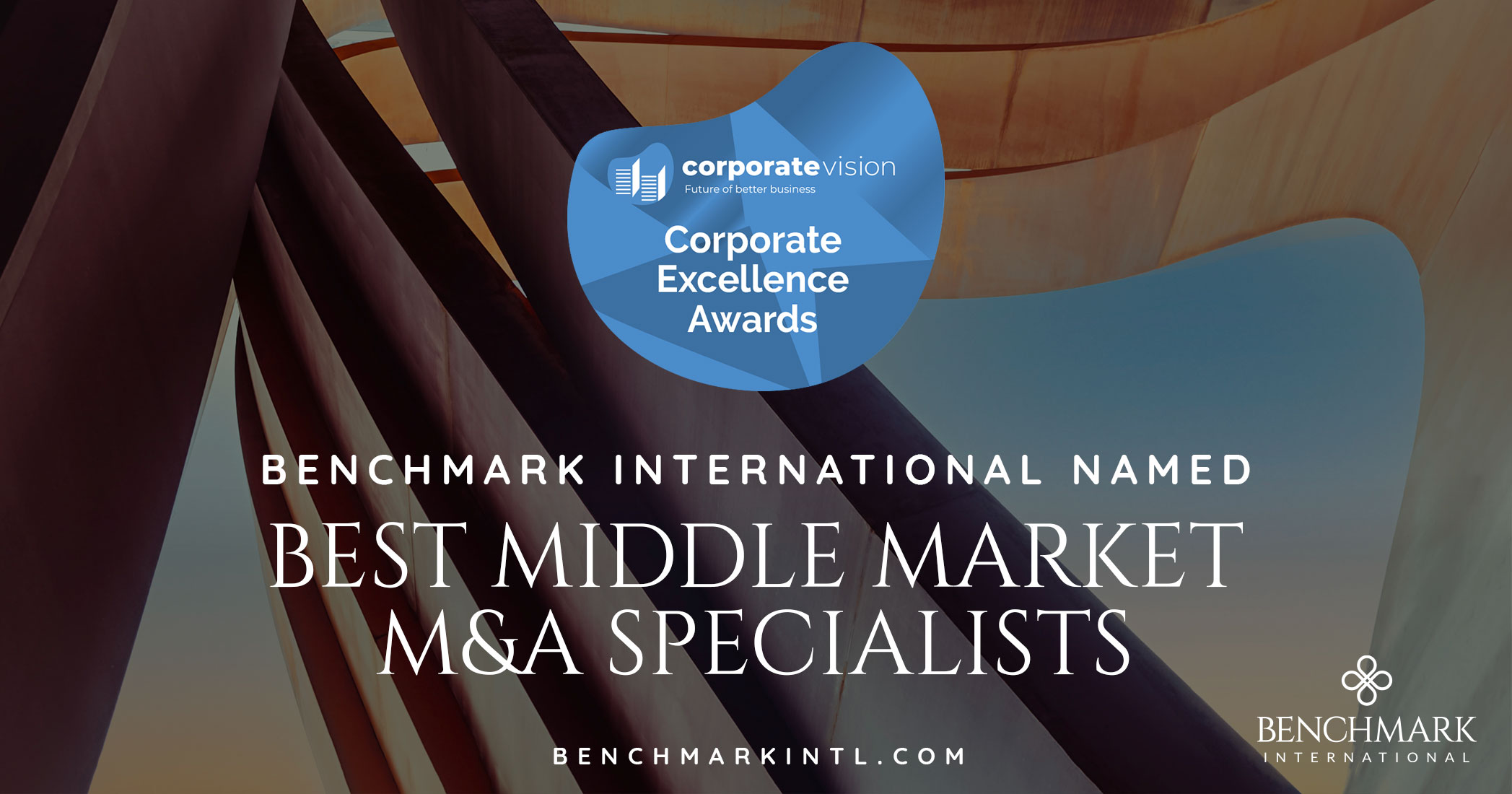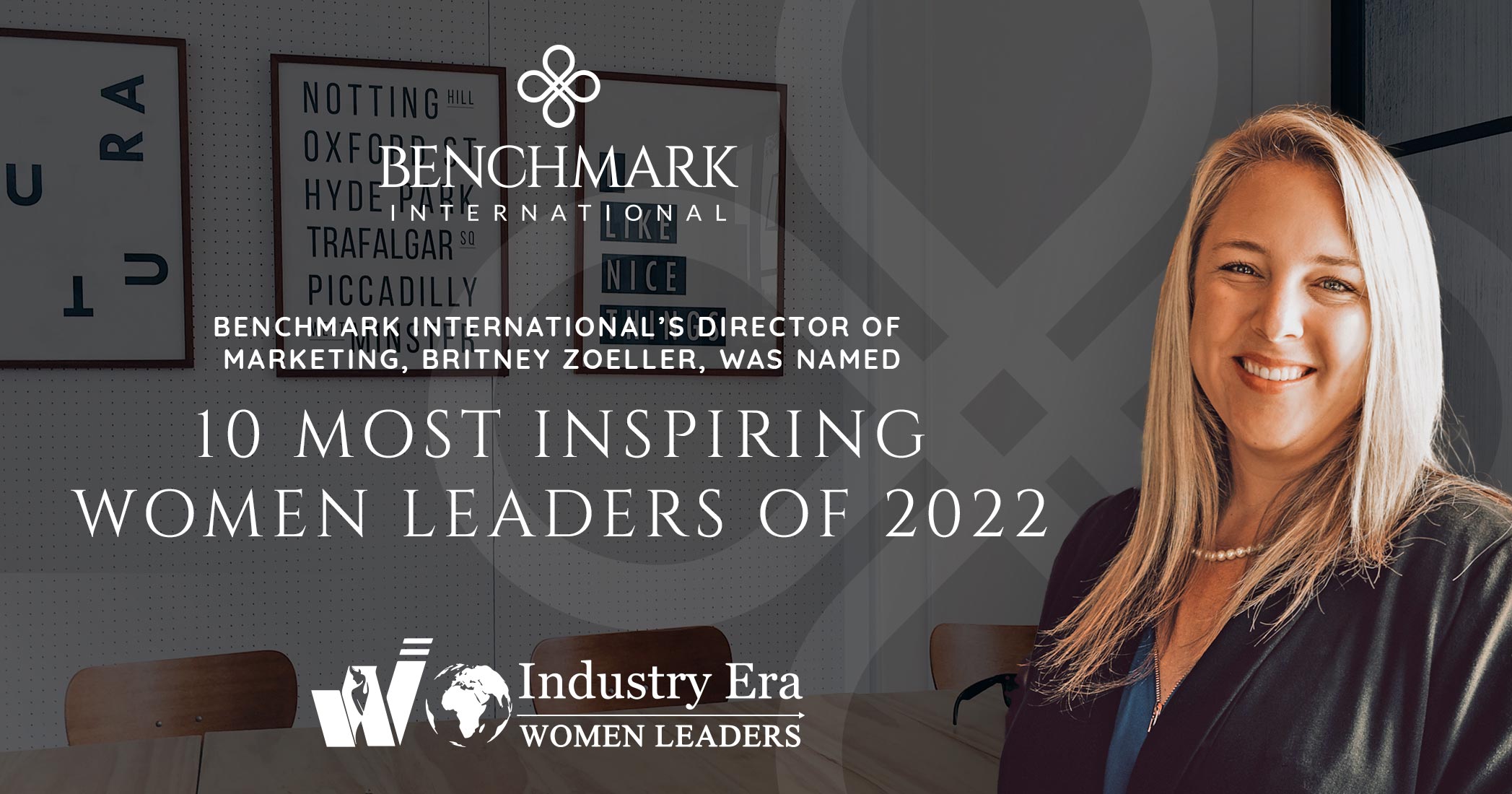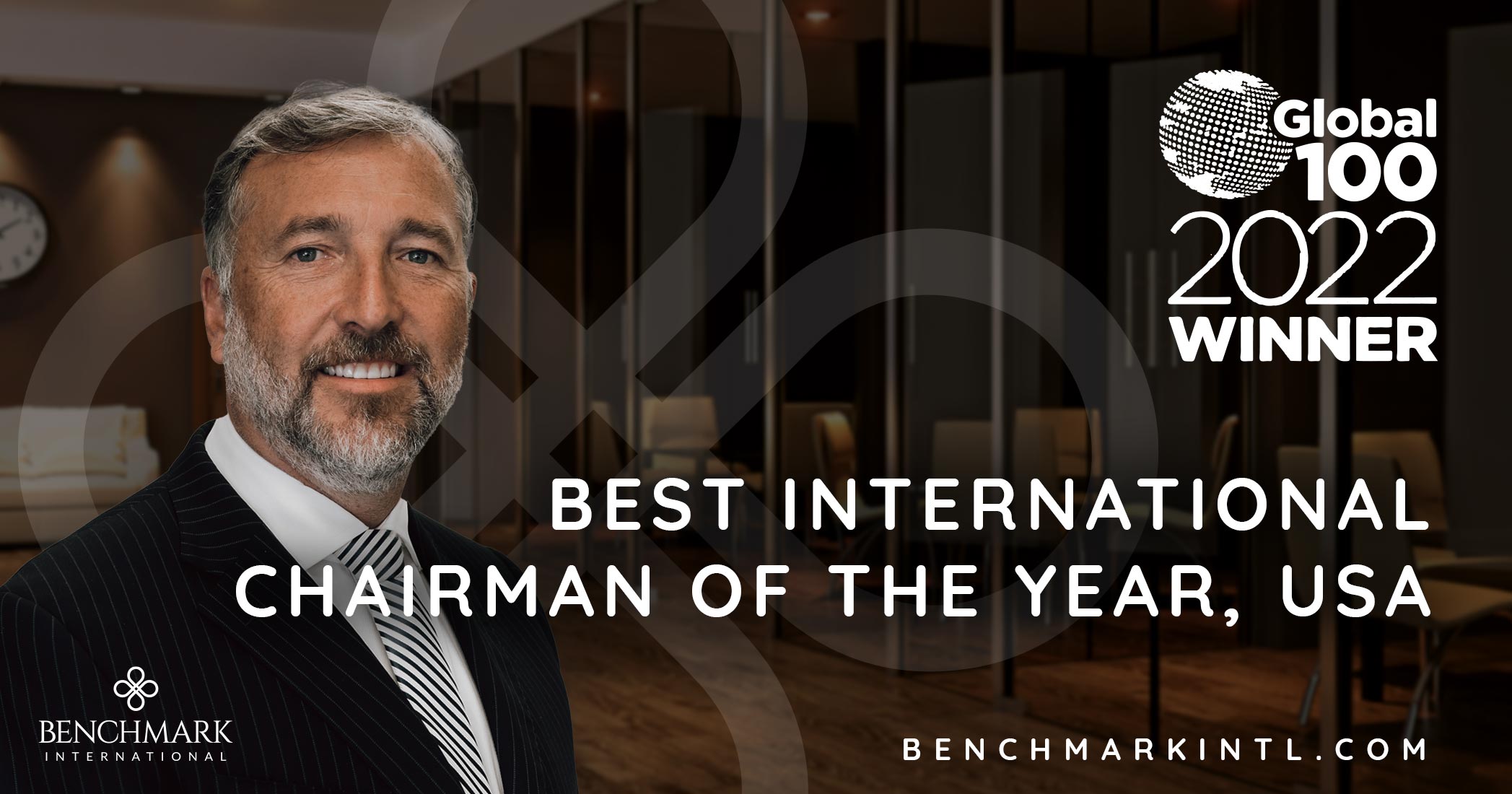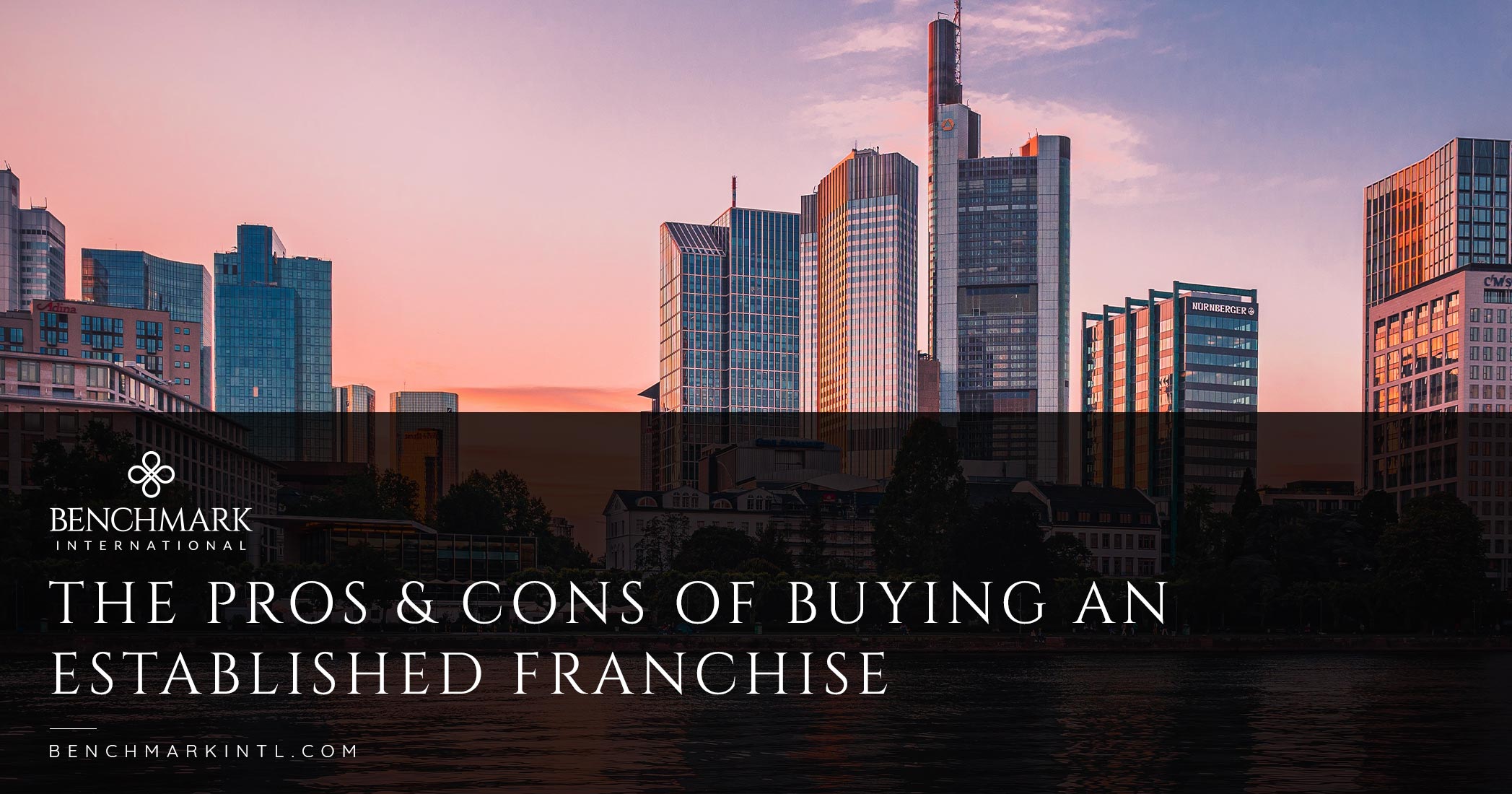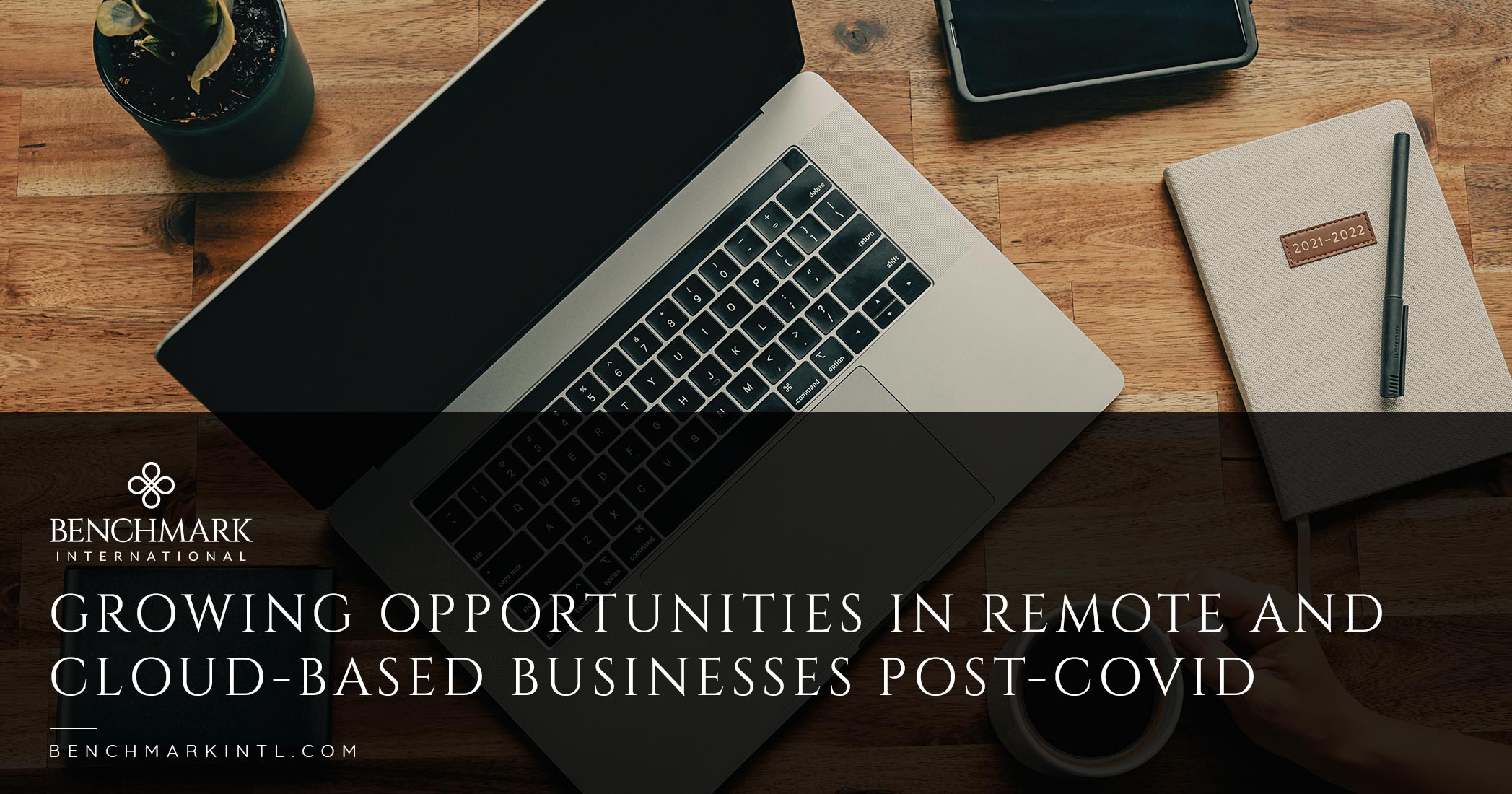The financial health of the aerospace and defense (A&D) industry has rebounded significantly from the negative economic COVID-19 impacts of 2020, poising the sector for a strong M&A market in 2022. The earnings of commercial aerospace firms have recovered, and original equipment manufacturers (OEMs) have announced a series of production rate increases for the years 2023 to 2025, raising the likelihood of supply chain acquisition activity in 2022. Additionally, the defense budgets of both the United States and Europe have remained stable, leading to high demand for defense products and services despite some production offsets due to supply chain challenges.
READ MORE >>Archives
Aerospace And Defense Sector M&A Update
U.S. Small Business Confidence Drops Amid Inflation Concerns
Last month, small business sentiment in the U.S. fell to its lowest level in nearly 9-1/2 years due to concerns surrounding inflation. Yet, at the same time, demand for labor remains more substantial than expected as companies continue to pursue growth.
Share this:
Benchmark International Named Best Global Middle Market M&A Specialists 2022
Benchmark International has been named 2022’s Best Global Middle Market M&A Specialists by the Global 100.
READ MORE >>Share this:
2022 Sector Report: Esports Valued At Over A Billion Dollars
eSports is a form of video-game-based competition that has seen significant revenue and viewership growth in recent years. Much of the revenue is coming from advertising dollars from brands, such as ads shown during live streams on online platforms, video-on-demand content of matches, or on eSports TV. And competitive gaming is becoming more mainstream than ever.
READ MORE >>Share this:
Upcoming Webinar: What You Need To Know About Selling Your Business To A Strategic Buyer
Join us for the complimentary webinar: What You Need To Know About Selling Your Business To A Strategic Buyer.
READ MORE >>Share this:
Why Your M&A Strategy Needs A Marketing Strategy
Several elements play into a successful merger or acquisition, from finance to sales and from operations to HR. Leading up to a transaction, it’s not uncommon for business owners to focus more on these elements and not the area of marketing as an essential part of their M&A strategy.
Marketing is an incredibly important part of ensuring the success of a deal and the integration of companies in the agreement. In addition, effective marketing strategies can help the company create value and growth in several capacities.
Share this:
Tracking The Pandemic Recovery Of Retail And Hospitality Sectors
The Retail Industry
Now that we seem to finally be closing in on the end of the COVID-19 pandemic, 2022 is likely to continue to see overall growth in the retail sector, but not without its share of challenges.
Share this:
What Are Environmental, Social, And Governance (ESG) Policies And B Corp Certification?
As a business owner, you may have noticed an increase in conversations regarding environmental, social, and governance (ESG) policies in the workplace and B Corp status. Even though these policies are being implemented more frequently with larger companies, many small and mid-size business owners are not fully aware of what these policies are, what they mean, and how they are affecting investor behavior and M&A transactions. Let’s start by breaking down exactly what ESG is.
READ MORE >>Share this:
What Are M&A Sources of Capital?
When raising money to fund mergers and acquisitions, there are several ways that capital can be sourced. First, the financing needs to be raised with consideration of the company's operating cash flows. For example, if the business uses debt financing, it should have sufficient funds to cover the interest and repay the debt.
READ MORE >>Share this:
What Are The Pros And Cons Of An IPO?
An IPO is an initial public offering (IPO), which is the first limited public stock sale by a private company. IPOs are a strategy often used by smaller businesses to raise capital from public investors in order to facilitate expansion and growth. Once public, the company can be traded on the open market. There are both upsides and downsides to taking a company public.
READ MORE >>Share this:
Top Reasons Business Owners Seek An M&A Strategy
What is an M&A Strategy?
A strategy for a merger or acquisition is the rationale behind the transaction. Your objective should determine the type of deal that is right for your company. Maybe there is even more than one objective. Commonly, these goals are focused on boosting financial performance and mitigating risk.
Share this:
The M&A Process From A Buyer’s Perspective
When it comes to mergers and acquisitions, it is common for a seller to struggle to see the transaction from a buyer’s point of view. This is quite understandable because a business owner spends years, and even decades, building their company into a successful venture. It makes it more difficult to see the transaction from a potential buyer’s perspective. Many M&A transactions fall through because the seller and buyer simply cannot get on the same page. As a seller, you can work with an experienced M&A advisor to help you manage your expectations for the value of your company so that you can not only get the most out of your deal but also make sure the deal goes through. If you’re selling a business, you should understand how the valuation of a company works, what it is based on, and what is important to a buyer.
READ MORE >>Share this:
What Is A Sustainable Growth Rate?
As a business owner, it is important to have a solid understanding of what a sustainable growth rate (SGR) is, and why it matters to the valuation of your company.
READ MORE >>Share this:
How Can M&A Help My Business Recover From Covid?
The COVID-19 pandemic taught us quite a few lessons for keeping a business surviving and thriving in unchartered territories. Now is the time to be forward-thinking. There are ways that you, as a business owner, can utilize mergers and acquisitions (M&A) as an effective strategy to accelerate your company’s recovery from the lingering impacts of the pandemic from both a defensive and offensive perspective.
OFFENSE:
Accelerate Your Business Model
Inorganic Growth
Emerging from a pandemic is not the time for organic growth strategies for most businesses. This is especially true for sectors that have experienced irreparable impacts, such as retail, hospitality, tourism, and live entertainment. However, M&A can accelerate growth within a business model is otherwise not feasible or accessible ways. Whether it’s accessing new supply chains or acquiring a competitor’s talent, M&A is an effective tool that can open up several possibilities for growth and success.
Disruptive M&A
Technology and innovation have become more imperative than ever because of the need for rapid digitalization during the pandemic. When remote working and online conferencing became the norm, disruptive tech was put on an epic fast track. Everyone wants what is hot, and they want it ASAP. Otherwise, they risk falling behind the competition. As a result, these technologies offer significant M&A opportunities for companies in many sectors, such as cloud computing and artificial intelligence.
Boosting Supply Chains
Supply chains have taken a significant hit due to the pandemic, with some sectors experiencing worse disruptions than others (such as automotive, energy, and manufacturing). As a result, these sectors are being forced to reboot and find ways to alter their supply chains to get what they need. This is where M&A can be a real game-changer, helping companies gain access to alternative supply chains and keeping operations on track.
Alliances and Joint Ventures
Because of the pandemic, consumer behaviors and spending patterns have changed. Welcome to the new normal. This means that businesses will need to look to new strategic alliances to be more agile in catering to new customer habits, and M&A can help make these joint ventures a reality.
DEFENSE:
Protect Your Future
Integration and Value Creation
Now more than ever, many companies need to cut costs, free up working capital, and do it quickly. M&A is one of the more timely ways to make this happen. Also, planning on ways to create value today can protect your business in the future. By turning to M&A, you can both integrate and develop.
Divestitures and Separations
As economic pressures persist, many businesses need to divest non-essential assets. At the same time, they may also need to unload any highly sought-after assets for financial reasons. There are also opportunities due to sustainable investing becoming much more popular. In addition, environmental, social, and governance (ESG) initiatives lead to rebalancing portfolios, which could mean actionable assets for divestiture. In any case, sellers should enlist professional M&A advisement to ensure that they avoid getting into asset fire sales. Learn more about the value of hiring an M&A advisor here.
End-to-End Distressed M&A
2021 was a record year for M&A, and a great deal of opportunity still exists. Many types of investors, including private equity, activist, and corporate investors, have strong balance sheets. They are sitting on plenty of cash and are in the position to move quickly on acquisitions of distressed businesses.
Let’s Get Started
If you think M&A strategies could benefit your company, our experts at Benchmark International would love to hear from you so that we can discuss your options and help you make the most of your success.
Share this:
Eight Truths about The Current Market for Selling Your Business
For more than ten years, business owners have enjoyed a sellers’ market in the lower and middle markets. But the tide is turning. Here’s the headline: Multiples are not trending downward, buyers are slower, more cautious, and cockier, and deals are taking longer.
The best analogy is that we have been on a roller coaster, and we no longer hear the clicking sound as we go up, but we’ve also not started to feel anything in our stomachs. It’s almost as if we are paused, and we feel certain that we know what is coming next. Buyers feel as if they’ve been bullied for the last decade by aspirational sellers and their agents. They have pent-up resentment. Some of it is starting to show.
Share this:
What Is The Difference Between An M&A Advisor And A Business Broker?
When you are about to sell a business, you have a few options regarding how to do it, and whose expertise to enlist. Many people confuse M&A advisors with business brokers. While there are some similarities, they are not one and the same. There is actually more than one significant difference between an M&A advisor and a business broker. It is important for any business owner to understand these differences, so that it can be determined which is the best way to go about the sale of a company.
READ MORE >>Share this:
Benchmark International’s Gregory Jackson Named International Ceo Of The Year (Corporate Finance)
Gregory Jackson, Benchmark International’s CEO, was named International CEO of the Year (Corporate Finance) by the Gamechangers™ 2022 Global Awards, adding to his growing and impressive list of accolades.
READ MORE >>Share this:
M&A Trends In The Lower And Middle Markets
In the first quarter of 2022, global middle-market M&A activity maintained the momentum that we saw in 2021. Last year, lower and middle-market companies played major roles in deal-making activity. Companies of all sizes enjoyed significant buyer interest in sectors ranging from tech, transportation, healthcare, manufacturing, and logistics.
A notable imbalance in supply and demand in the lower and middle markets has been driving up the valuations of healthy companies in hot sectors. This trend is expected to continue through 2022 for strong companies in the lower and middle markets, especially in sectors such as healthcare, cybersecurity, cloud computing, artificial intelligence, and niche manufacturing.
READ MORE >>Share this:
Seller Handover In A Business Sale
Handover Process
After completing the sale of your business, there is typically a handover process between the seller and the buyer. One of a buyer’s most significant concerns when taking over a business is that the company’s performance continues as it was before the sale. When a seller is willing to stay on for a handover process post-closing, the buyer has increased trust in the business, resulting in the business selling more quickly and at a higher valuation. Therefore, it will be beneficial to both parties to plan this part of the process well and in advance of the time that the handover will take place. The length, compensation, etc., of the Handover period will be worked through during the Purchase Agreement negotiations. If there is a failure to recognize and offer an acceptable handover period for the business, it could cause a deal to fall apart while it is in due diligence.
Stages Of A Business Handover
The typical stages of a business handover are the Training Stage, Handover Stage, and Assistance Stage. Immediately following the sale, the seller will usually continue to run 100% of the business. During this time, the new owner will take some time to familiarize themselves with the business. Then, as the Training stage begins, the seller will slowly reduce their involvement while the buyer continues to increase theirs. In the Training stage, the seller must create a checklist of items that he can run through with the new owner. Mark each item as complete once it’s finished, and keep this for your records if you run into any issues down the road. It is a good idea to observe how a day in the life of your business typically goes. Take note of every payroll task you complete, every person you communicate with, any supplier or contractor documentation, provide copies of all budgets, information about cash flow, etc. Continue with this process until you feel that you have been able to document all of the particulars that the new owner will need to know in order to keep the business operating smoothly. As the seller trains the new owner, the seller will slowly start to reduce their involvement while the buyer continues to increase theirs. This sequence will continue until the complete handover is achieved.
During the Handover stage, the new owner runs 75%-100% of the business with the seller still on hand to help answer questions and ensure that processes are running smoothly. If you have had a successful Training stage, the new owner will have increased confidence in successfully running the business. This may matter to the seller as well, particularly if there are any deferred payments or earnouts that have been agreed to in the structure of the sale. It is imperative to train the buyer and put them in a position to be successful, as both parties benefit from doing so. The new owner will now be in charge of making crucial decisions and bringing innovative ideas and future plans for the business to the table. Customer and employee relationships with the new owner should be solidly in place at this point, and the seller should have very limited involvement in the day-to-day activities of the business.
Once the new owner is running 100% of the business, it is common to enter the Assistance stage, where both parties have made an agreement to remain in contact for a set period of time in case there are any questions that come up. While the seller is no longer directly engaged with the daily runnings of the company, it is best for them to make themselves available to answer any questions that the new owner might have. Many times the majority of this communication can be handled through email and phone conversations. An essential item to have established for this stage is the amount of time the new owner can expect to receive help from the seller, paying particular care to have the expectations and limitations outlined.
A properly planned Handover period can help the seller and the new owner is mentally prepared for the seller’s exit and help prepare the business, customers, and employees for the handover. Once the handover is complete and the seller exits fully, they can know that the business is in good hands. It is time for them to recover from and reflect on the ownership handover period and identify their next goal to get excited about.
Author
Amy Alonso
Transaction Director
Benchmark International
T: 512 861 3301
E: Alonso@benchmarkintl.com
READ MORE >>
Share this:
What Is A 338(H)(10) Election And Why It Is Important To Me?
Knowing the structure of a transaction you are involved in is key to optimizing the composition of a deal. If you enter a proposed transaction thinking you understand the offer, you may be blindsided by various structures that may affect your net cash position. A critical aspect of a transaction is understanding the structure and what it means for you as a buyer or seller. Clients often believe that they agree to accept a stock transaction only to find out that the transaction will include an election that may affect their tax bill. A 338(H)(10) election is one of the more popular tax elections, but there are others.
READ MORE >>Share this:
2022 Food & Beverage Industry Report
The global food & beverage services market is forecast to grow from $3,232.94 billion in 2021 to $3,678.61 billion in 2022. That represents a compound annual growth rate (CAGR) of 13.8%. Growth is primarily due to companies rearranging operations amid recovery from the COVID-19 pandemic that resulted in so many challenges for the industry. By 2026, the market is expected to surge to $5,235.52 billion at a CAGR of 9.2%.
Share this:
2022 Fintech Industry Report
The global fintech market was valued at $6.5 trillion in 2021 and is estimated to grow at a compound annual growth rate (CAGR) of 13.9% between 2022 and 2028 to reach $16.65 trillion.
READ MORE >>Share this:
2022 Digital Healthcare Industry Report
Share this:
You Haven’t Missed Out On The Ideal Seller’s Market
2021 was a strong market for business owners looking to sell their companies. The market remains ideal and will do so as we move into the first quarter of 2022. As we are in the middle of this year, there is no better time to consider putting your business on the market.
2021 Recap
M&A activity was moving at a record pace in 2021, thanks to economic recovery, a strong stock market, low-interest rates, rapid digitalization, more SPACs, confident boardrooms, and available debt. The U.S. had reported more than $2 trillion in M&A activity in 2021, with the year on pace to be the most active in history. Not to mention that the second quarter of 2021 was the third straight, with total global M&A value surpassing $1 trillion. That is the first time this has ever happened in three consecutive quarters. So even in the middle of the year, when things typically slow down, we are still seeing a great deal of investment, and the market is still flooded with capital.
Share this:
2022 Marketing Consulting, Branding & PR Industry Report
The Global Marketing Consulting Market
The global marketing consulting market is expected to grow by $3.83 billion between 2022 and 2026, increasing at a compound annual growth rate (CAGR) of 4.75%.
Market growth is being driven by various factors, including continued education, the rising need for improved customer digital experiences, and the providing of custom-made solutions.
Because the global marketing consulting market is rather fragmented, we are seeing vendors trying to remain competitive by deploying growth strategies such as forming strategic partnerships. Over the next four years, 35% of the global market’s growth will originate from North America.
READ MORE >>Share this:
Benchmark International Named Best Middle Market M&a Specialists
Benchmark International has been named the Best Middle Market M&A Specialists by Corporate Vision’s Corporate Excellence Awards.
READ MORE >>Share this:
What Are SPACs?
Share this:
Benchmark International Named International Mid-market Advisory Of The Year (Corporate Finance)
Benchmark International has been named the International Mid-market (Corporate Finance) Advisory of the Year by the Gamechangers™ 2022 Global Awards.
READ MORE >>
Share this:
I missed the market!
We have been in an unprecedented bull market. I use the phrase here broadly as the public markets have been flying for over a decade, and the M&A market has seen similar levels of growth. Spurred on by aggressive monetary and fiscal policies and a relaxed regulatory environment, the S&P 500 has grown 15.47% as of the time of this writing from the bottom on March 9, 2009. Similarly, the DJIA (The Dow 30) has grown at an annual clip of 13.64% over the course of this thirteen-year bull market. Remember what the rule of 72 demonstrates- that money doubles every 6 years at 12% and in less than five years at 15%. This is a remarkable rate of growth when you consider this market has spanned nearly 1/7th of a century.
But bull markets must end. Markets do work in cycles. Much like our natural habitats require destructive fires to seed future growth and a healthy ecosystem, so too does the market. I’m not referencing the concrete jungles we find ourselves in today, but rather our natural environments. Bear markets reintroduce a rational approach to investing that had long been sidelined in favor of momentum and emotion-based investment “theses."
Further, bear markets tend to focus investments toward the highest quality of companies, known as a flight to quality. This clearing of the playing field, separating the wheat from the chaff, will often spur innovation and future growth. So a bear market is as natural to the market dynamic as is a bull market. These countervailing forces are required for regeneration.
The bull market created trillions of dollars of dry powder for buyers to deploy in the coming years. The balance sheets of corporations, large and small, are replete with cash there to deploy in pursuit of their stated strategic goals. The best of markets tends to flood the M&A market with excess buyers, many of which lack the track record, experience, credibility, and true access to funding required to transact successfully. Bear markets tend to weed away many of these less credible buyers creating a similar flight to quality detailed in the above discussion about the public markets. And while the cost of debt will tick up and valuations may similarly tick down, the likelihood of actually consummating a transaction increase as there is a much better chance that the buyer selected can get a deal done.
I tend to view my decisions in life through a very specific lens- my expected value lens. If one were to look at an M&A transaction through that lens, we would likely find the expected value of the proceeds from a transaction as being higher, even if valuations tick down, because the likelihood of closing is greatly increased. And frankly, while the cost of capital on senior debt will rise over the course of the year, given the aforementioned stores of cash in their coffers, buyers will have the ability to utilize more equity to bridge any gaps in the capital stack. Private Equity funds have more than $2 Trillion of dry power. They also have a mandate to put capital to work regardless of the cost of debt lest they face aggressive headwinds during their next fund raise. Their Limited Partners, known as LPs, require that they put the money to work. Deals will continue to happen and we may in fact see more deals in the next eighteen months or more as buyers finally draw down on the excess stores of cash build-up that resulted from inflated valuations and bidding wars with less credible buyers.
Sellers must consider several factors when considering a sale. Of course, valuation and a healthy economic environment are among those factors but they don't have to be the determining one. We are often faced with life changes of which we have no control. Some of us simply reach a stage where we no longer wish to carry the burden that invariably comes with owning and running a business. Or, God forbid, we encounter health challenges personally or in our family that requires that we focus our attention elsewhere. Perhaps we come to the realization that we are no longer the right caretaker for the business? That the business has reached a level where our skills no longer map to what is required to successfully steer. Whatever the reason to sell your company, we can only control the controllables.
Just like in the public markets, if we try to time it perfectly, we will invariably fail because the objective was unattainable. Selling one's business is a life-altering decision. Selling a business can be both liberating and gutting. Sellers are at once monetizing their life's work and entrusting someone else with its care. The stakes are high. When making that determination, it is critical that sellers consider all of the critical variables. While valuation, market conditions and timing are among the variables worthy of consideration, they are merely inputs to a multivariate equation. Often, upon careful consideration, sellers determine that the qualitative elements are more important than are the quantitative ones.
Author
Dara Shareef
Managing Partner
Benchmark International
T: 813 898 2350
E: Shareef@benchmarkintl.com
READ MORE >>
Share this:
10 Inspirational Graphics About Retirement
Benchmark International's Brittney Zoeller Named To 10 Most Inspiring Women Leaders Of 2022
Brittney Zoeller, Benchmark International’s director of marketing, has been named one of the 10 Most Inspiring Women Leaders of 2022 by Industry Era for Women.
READ MORE >>Share this:
What’s The Difference Between Recurring And Repeat Revenue?
If you are considering selling your business, you will need to have a clear understanding of its type of customer revenue because it can significantly impact the value of your business. Sometimes people confuse recurring revenue with repeat revenue, but it is essential to understand how they are not the same thing.
Recurring Revenue
Recurring revenue stems from a contractually bound legal agreement for a solution delivered over time. It is usually contractual over one or multiple years, and because it may carry penalties or fees if the customer leaves, it can be counted on into the future. This makes it highly valued by prospective acquirers because of its predictability and lower risk.
However, recurring revenue does not have to be contractual to be valuable. Depending on the business and the services offered, it can be too costly or too much of a hassle for a customer to leave or switch providers. An excellent example of this is customer relationship marketing companies that collect large amounts of valued data over time, making it more beneficial for clients to stick with their services. Below is a list of the different types of recurring revenue.
Share this:
Benchmark International’s Steven Keane Named Best International Chairman Of The Year, USA
Benchmark International’s Executive Chairman, Steven Keane, has been named the Best International Chairman of the Year, USA by the Global 100 (2022).
In the Global 100 by EMG Publishing, a world-renowned publishing house, each award has a unique, proprietary selection process and ranking method. According to a comprehensive set of criteria, only the most worthy winners are chosen based on their domestic and international work. Judging focuses heavily on the complexity, and strategic significance of work performed, underscoring the importance of the recognition each winner is receiving as an organization or individual.
EMG Publishing is based in the United Kingdom and is known for producing some of the world’s most coveted awards programs that celebrate excellence across the globe. EMG Publishing aims to provide a benchmark of the very best industry leaders, exemplary teams, and distinguished organizations.
Congratulations, Steven!
Share this:
The Pros & Cons Of Buying An Established Franchise
Share this:
Benchmark International's Kendall Stafford Wins "Top USA Woman Deal Maker Award"
Benchmark International’s own Kendall Stafford has won the Top USA Woman Deal Maker Award from the 4th Annual USA Growth Intelligence Forum and the USA M&A Atlas Awards.
The award singularly honors the A-list of the most talented, respected, and brilliant women dealmakers from private equity, venture capital, investment banks, legal, and restructuring transactional communities. It is officially “award winner recognition,” unlike industry lists, rankings, editorial praise, or write-ups.
READ MORE >>Share this:
Benchmark International Named Gamechangers™ Progress Champion 2022
Benchmark International continues to draw accolades on the world stage, being awarded the Gamechanger™ Progress Champion Award 2022 by the Gamechangers™ 2022 Global Awards.
READ MORE >>Share this:
Growing Opportunities In Remote And Cloud-based Businesses Post-covid
Digital tools have been advancing in business operations for years, but today they have become essential for most companies, especially since the onset of the COVID-19 pandemic. The global crisis forced businesses to find ways to connect their employees to each other and their customers without being in person. This storyline became so prevalent that, in the first year of the pandemic, 60% of businesses moved their workforces to the cloud. Two years later, this number continues to increase.
Such demand for rapid digitalization has become a key driver of M&A deals, and continues to create more opportunities for growth and transactions. As a result, many organizations are also adopting tools to facilitate the M&A process on more digital terms. These tools include data and analytics during due diligence, platforms that support fast-moving transactions, and cloud-based services. You can take a deeper dive into the facets of post-COVID due diligence here.
Share this:
2022 Real Estate Industry Report
Share this:
Benchmark International’s Steven Keane Named Best International Chairman Of The Year, Usa
Benchmark International’s Executive Chairman, Steven Keane, has been named the Best International Chairman of the Year, USA by the Global 100 (2022).
READ MORE >>
Share this:
Questions to Ask Before Selling Your Company
What’s Your Competitive Advantage on the Market?
Consider why prospective buyers would be interested in purchasing your company. You should be able to identify its assets in order to get a proper business valuation. How unique is your product or service offering? Do you outperform the competitors in your sector or in a particular geographic area? You will also want to consider whether your revenues are stable, growing, or declining. If you understand why someone would be interested in purchasing your company, you will be more equipped to enhance those qualities and effectively articulate them to buyers.
READ MORE >> Benchmark International
Benchmark International  Benchmark International
Benchmark International 



